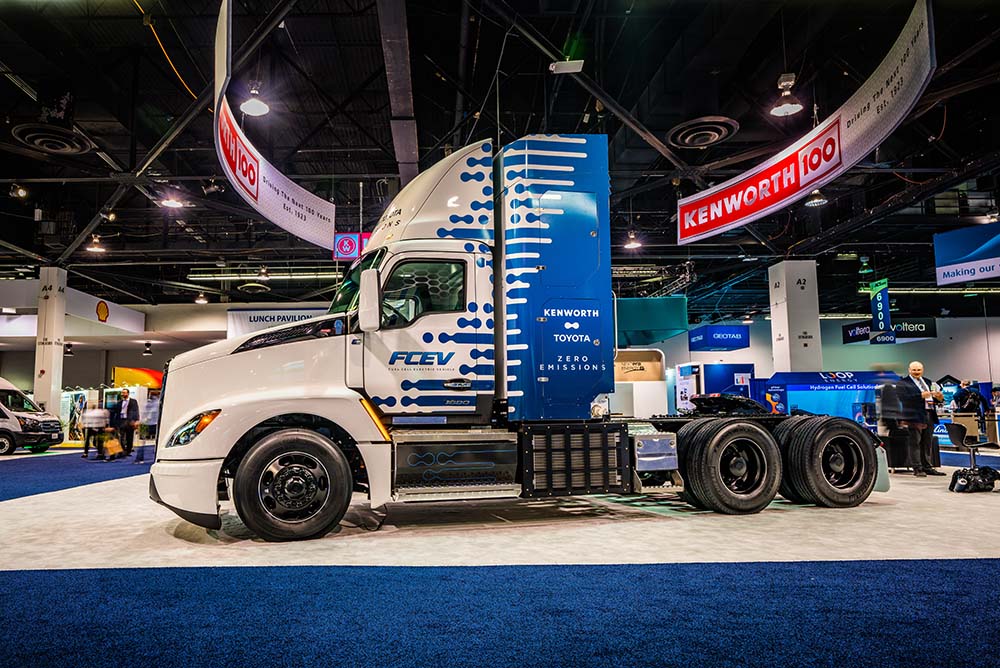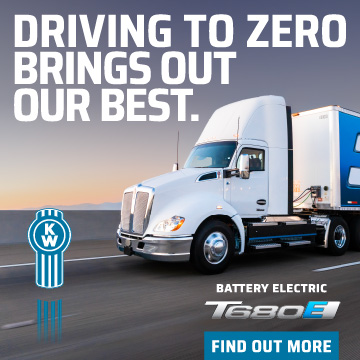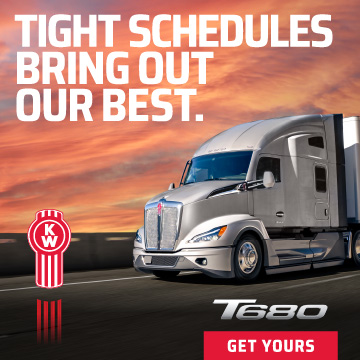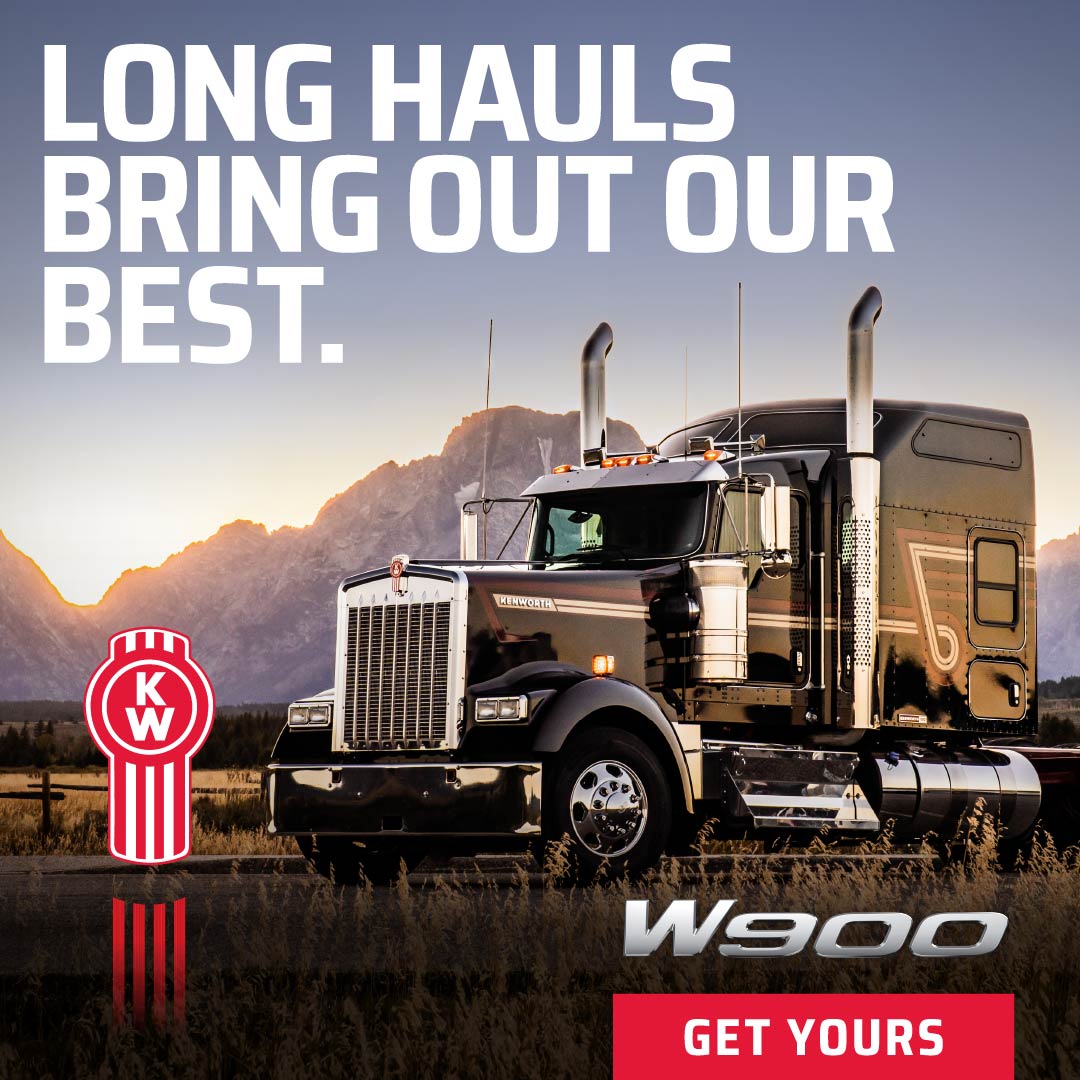For engineers at Kenworth, ideas are always coming. They’re constantly considering new ways to incorporate the latest technology into Kenworth trucks, and innovative platform ideas are always in the works. It’s likewise with programs to enhance support after the sale, because customer care goes hand-in-hand with a quality product.
“The days of just building and selling a truck are long gone. We’re now a transportation solutions provider,” said Kevin Baney, Kenworth’s general manager. “There is synergy between Kenworth, our dealers and our customers. Selling a truck is just the beginning—we’re here to support the truck and our customer from beginning to end.”
As the pace of technology accelerates, Baney said Kenworth is ready for the future. “The question is, ‘Who can react fastest in a dynamic world?’ Customers need support in a 24/7 environment. That’s where our connected TruckTech+® platform comes in. If there is a problem with one of our trucks on the road, we can direct that truck to the nearest dealer who has the right part waiting, and who can make a fast turnaround to maximize uptime.”
Soon TruckTech+ will include prognostics, allowing information about a truck to be gathered and processed quickly so problems can be addressed before they occur. “We’re collecting a vast amount of data on our trucks and engines and will soon be able to do predictive maintenance, based on what we’re seeing,” said Baney. “And as data builds, it will only get better. We are going to take all that data and enrich it – diagnosing the need to replace a part before it happens. That’s going to translate into what fleets need most: uptime.”
When it comes to the powerplant, much of the future will be with zero-emission trucks as several states – most notably California – have mandated those in the not-so-distant future. Baney said the move from diesel to zero-emission is a long process, upwards of 20 years for full adoption. “We feel battery power is the clear answer with our medium-duty product line and for regional work with Class 8s.”
For long-haul operations, hydrogen fuel cell technology, developed in partnership with Toyota, is expected to be a big part of the mix, and Kenworth is taking deposits now for 2024 deliveries of its T680 hydrogen fuel cell electric vehicle. It didn’t take long for leading companies to take notice.
Loblaw Companies Limited was one of the first to reserve a spot – testament to the company’s commitment to fight climate change. Loblaw is Canada’s food and pharmacy leader, as well as its largest retailer and private sector employer.
“We’re committed to finding solutions that allow us to operate sustainably and protect the natural resources and beauty of Canada,” said Wayne Scott, Loblaw’s senior director of transportation maintenance. “With a longer driving range compared to battery-electric vehicles, we see hydrogen-powered trucks as an excellent way to reduce emissions for our trucks that travel longer distances. We’re excited to be one of the first companies in North America to place an order for these trucks and be an early adopter of hydrogen fuel cell technology.”
At the Kenworth R&D lab and at the PACCAR Technical Center, Baney said Kenworth is hard at work turning vision into reality – with products and components which can make a measurable difference in productivity while cutting total cost of ownership.
Baney pointed to Kenworth and PACCAR’s involvement in the SuperTruck 2 and SuperTruck 3 DOE grant projects as testament. “SuperTruck 2 uses advanced diesel technology and is all about freight efficiency, creating new ideas that can help transform the delivery of goods. SuperTruck 3’s end goal is to build out a commercially viable battery electric truck and infrastructure that will reduce operating costs by 30% and achieve a 75% greenhouse gas reduction as compared to what’s now commercially available. And the goal is to extend the range of the battery electric truck by using the next generation in batteries and components, and how it can all work with a microgrid for repowering. These are key projects for Kenworth and PACCAR.”
A key partner in SuperTruck 3 is Knight-Swift Transportation – the country’s largest full truckload carrier with approximately 28,000 power units. “Kenworth has a history of doing the right thing and getting things done,” said Dave Williams, the company’s senior vice president of equipment and government relations. “Knight-Swift set a goal in 2019 to reduce our carbon footprint by 50% over the next 15 years. It’s important for our company to do everything it reasonably can to meet those goals. We want to understand how technology will be changing, and we want to help our industry move forward. It’s why we wanted to be involved with SuperTruck 3. This project will bring everyone together to show what’s possible, and it will help shape the future of zero-emission trucks.”
“It’s a dynamic and ever-changing industry,” said Baney. “We’re well-positioned with our products – the on-highway flagship T680 and vocational flagship T880 have been great performers with our customers – but we’re never done. We’re keeping to our core mission: ‘creating transportation solutions to drive a better world.’ We’re investing our R&D in the right things. The future of Kenworth trucks, services and our people is extremely bright – we are excited and ready to drive the next 100 years.”
Driven to Innovate
LIFE
KENWORTH VIDEOS
Watch the most recent Kenworth video content below, or view the full video collection here.














